US, EU ‘owe half the cost’ of repairing climate change: Environmental groups
The United States and Europe bear more than half the cost of repairing the damage already wrought by climate change, a coalition of environmental groups says.
Based on their historic greenhouse gas emissions, the US and EU should be held jointly responsible for 54 percent of funding owed to developing nations already dealing with extreme flooding, droughts and megastorms rendered more frequent and intense by global warming, the groups said.
A week ahead of a UN climate summit in Madrid -- in which the controversial issue of how funding for the so-called "loss and damage" inflicted by climate change will be provided -- they said the amount needed would hit $300 billion annually within a decade.
The UN Framework Convention on Climate Change, under which the 2015 Paris agreement was signed, is based on the principle that all countries must give at least their fair share in global efforts to mitigate and adapt to our changing climate.
These "common but differentiated responsibilities" are the bedrock of ongoing international negotiations on how countries can limit global warming to the Paris target of "well below" two degrees Celsius (3.6 Fahrenheit).
But as climate change outpaces efforts to tame it, poorer nations -- historically virtually blameless for man-made emissions -- are pleading for richer countries to compensate them for the natural disasters hitting their shores right now.
Negotiators at the COP25 in Madrid are tasked with fleshing out an international mechanism guiding how countries finance loss and damage reparations.
A collection of nearly 100 environmental groups said countries must agree on a financing facility whereby richer nations -- those mainly responsible for emissions -- help countries recover from climate-related catastrophes.
They called for $50 billion by 2022, rising to $300 billion annually to help at-risk nations by 2030.

"This is a crucial opportunity for the rich countries and polluting industries that have caused the crisis to meet their responsibility to those who are being hardest hit by climate disasters," said Harjeet Singh, global lead on climate change for ActionAid.
'Emergency now'
The groups analyzed each nation's ability to finance climate action, and compared that to its historic emissions, dating back to 1950.
It found that the US, the largest polluter in history, should contribute at least 30.4 percent of loss and damage funding.
The EU should pay 24 percent, they said, while China -- the largest current emitter -- was obliged to fund 10.4 percent.
Going further back to the start of the industrial age, the analysis found that the US's fair damage funding share would be over 40 percent.
Developing nations are both most at risk of climate-related disasters and least prepared to tackle them.
This double threat was borne out this year in Mozambique, when two deadly cyclones battered its coast.
The storms displaced millions, destroyed homes and crops, inflicting an estimated $3 billion in damages -- roughly 20 percent of the country's GDP.
But without a global, unified process for climate damage funding, countries are not yet obliged to get their checkbooks out.
After Cyclone Idai, the International Monetary Fund provided Mozambique with an emergency load of $118 million -- woefully short of what was needed.
The groups highlighted the basic inequality inherent in man-made climate change: the world's richest 10 percent cause 50 percent of emissions, while the world's poorest 50 percent cause 10 percent.
"We can no longer pretend that the climate emergency is something for the future," said Alison Doig, head of global policy at Christian Aid.
"Poor and vulnerable people are losing their homes, livelihoods and loved ones right now."
(Source: AFP)
Iran’s shortest rail route between China and Europe
'Shameful': Hamas decries Western systemic campaign against UN expert Albanese
Ethics in suspension: Epsteinization of power in today’s post-shame politics
Trump knows he cannot use military force to press Iran into accepting Israeli demands: Mearsheimer
Iran president vows to fast-track corridor projects to ensure regional security
VIDEO | Press TV's news headlines
Exposed: Leaked docs show monarchists rallying Iranian diaspora to back attack on Iran
Iran main obstacle to realization of ‘Greater Israel’ scheme: Hezbollah



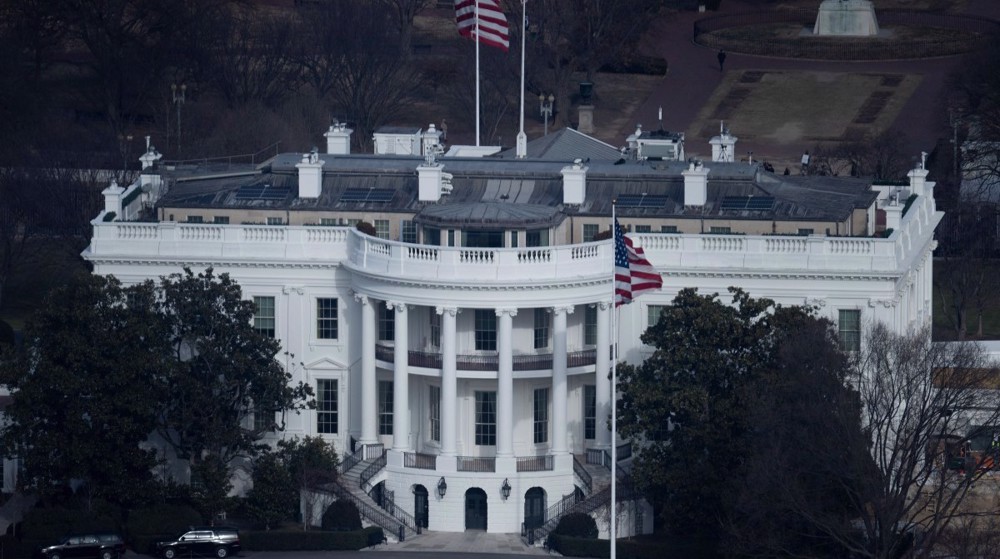
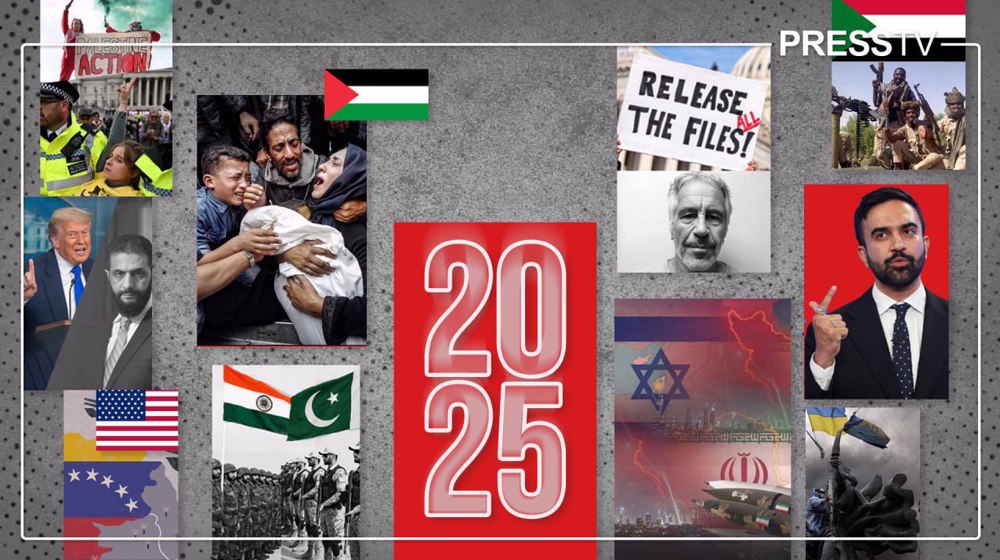
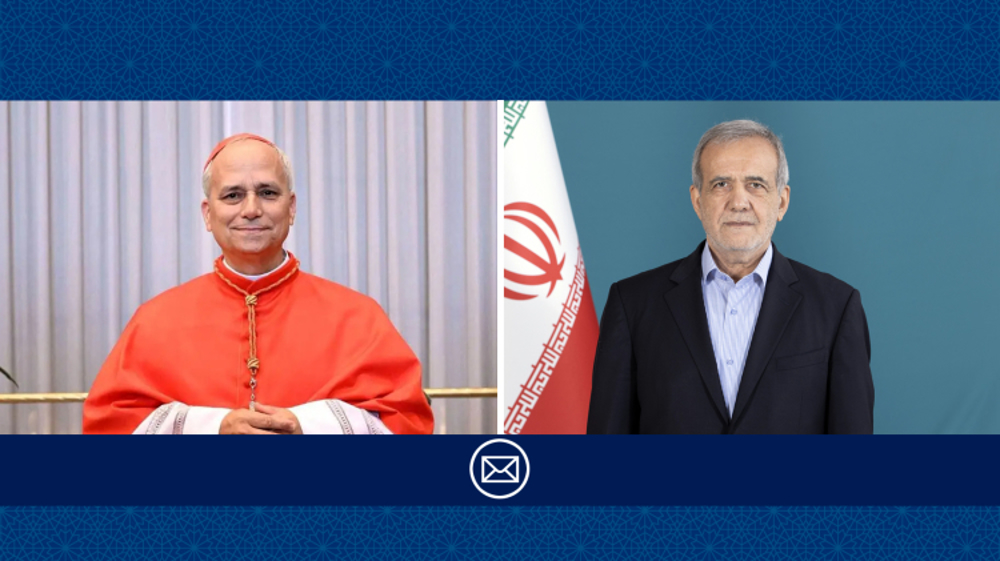



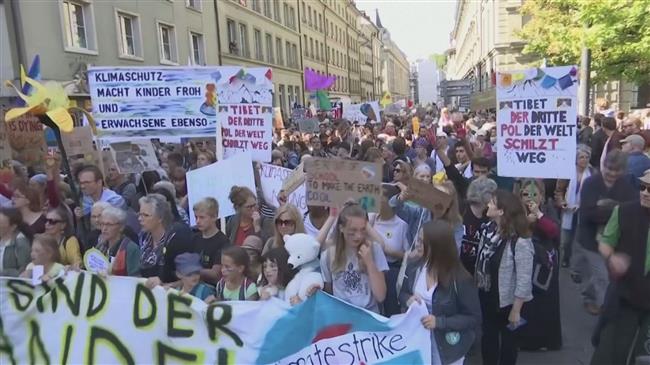

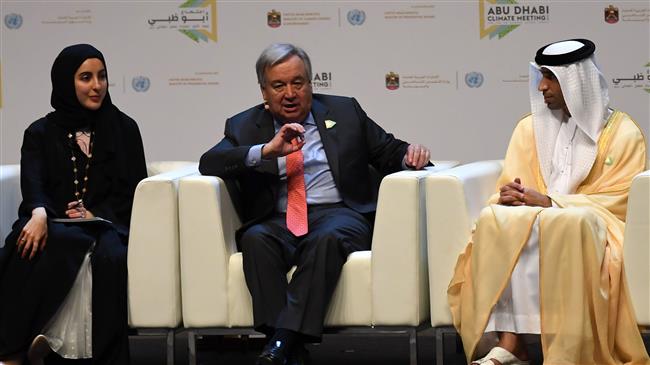

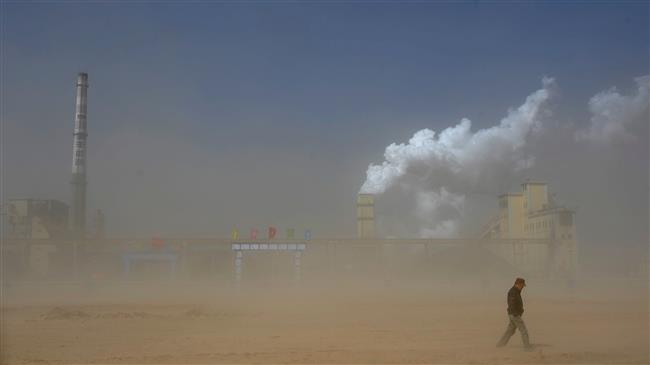

 This makes it easy to access the Press TV website
This makes it easy to access the Press TV website